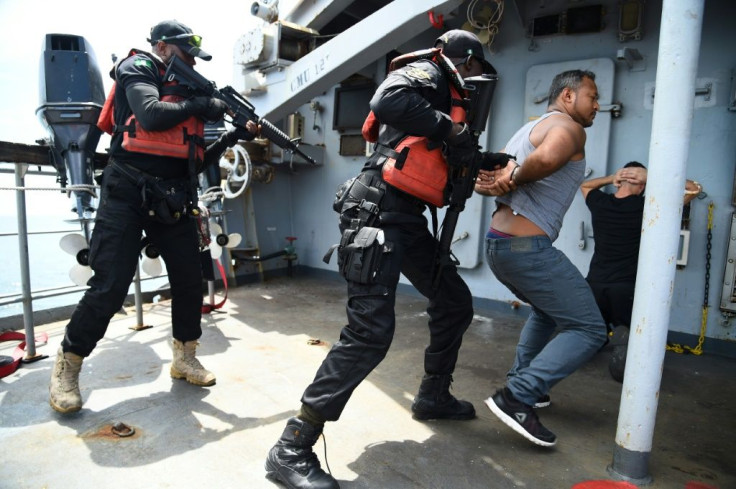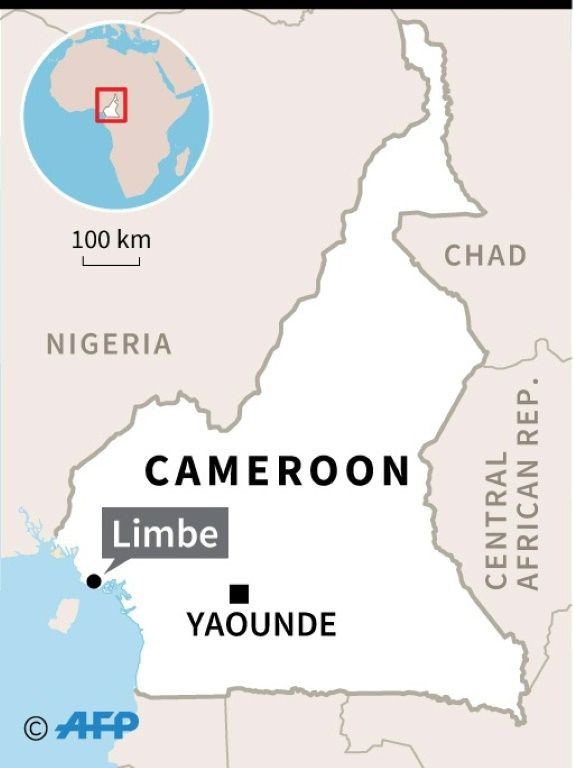Captain, 7 Crew Abducted From Greek Oil Tanker In Cameroon Port

Armed men staged a night raid on a Greek oil tanker anchored in a Cameroonian port and abducted eight crewmen, including the vessel's Greek captain, the merchant marine ministry and the ship's owner said Tuesday.
The five Greeks, two Filipinos and a Ukrainian were part of a 28-member crew aboard the Happy Lady in the port of Limbe, near the economic capital Douala, the ministry said in a statement.
Cameroonian authorities did not confirm the attack, the third such incident in a month, of which two targeted Greek vessels.
However, a port source did confirm it, adding that an investigation was under way.
The source noted that Limbe, which is close to a naval base, had until now been spared abductions in the Gulf of Guinea region which is a regular target for sea piracy.
"An armed group boarded the tanker and ordered eight crew members including the 45-year-old captain to disembark," a representative of owner Eastern Mediterranean Athens (EMA) told AFP, requesting anonymity.
One crewman, a Greek national, was receiving treatment at a local Cameroonian hospital for a wound to the ankle by a stray bullet, port police said in a statement.
The attack occurred at around 11:30 pm (2230 GMT) on Monday, the EMA representative said, adding there was no exchange of fire as the crew was not armed.
"Merchant Marine Minister Yannis Plakiotakis... is following developments closely, along with the Greek foreign ministry and the oil tanker's operator," the merchant marine ministry statement said.
Greek Prime Minister Kyriakos Mitsotakis spoke to Plakiotakis by telephone, asking him "to carry out all the necessary operations to ensure that this incident ends well," a government statement said.
Piracy has disrupted the operations of sub-Saharan Africa's two main oil producers -- Nigeria and Angola -- and severely upset international maritime transport essential to the continent, costing billions of dollars.

The Gulf of Guinea, which stretches some 5,700 kilometres (3,500 miles) from Senegal to Angola, has become the new world epicentre of piracy, lootings and kidnappings for ransom, especially along the Nigerian coast.
Pirates sometimes divert ships for several days, long enough to plunder the cargo and demand huge ransoms before freeing the crew.
From January to September, 82 percent of maritime kidnappings in the world occurred in the Gulf of Guinea, according to the International Maritime Bureau.
Few of the attacks are so close to shore as Tuesday's, however.
Pirates raided another Greek oil tanker, the Elka Aristote, in November around 10 nautical miles off the Togolese capital Lome, capturing four sailors.
They released three of the men on December 13, but one died in captivity.
An investigation is still under way, but "it appears his death was not a result of actions by the hostage-takers but of illness," the tanker's shipbuilder said at the time.
Pirates attacked four ships in the harbour of the Gabon capital Libreville on the night of December 21, killing a captain and kidnapping four Chinese workers whose fate remains unknown.
Despite such headline-grabbing incidents, regional navies like Nigeria's point to a decline in attacks since 2018 and say increased international cooperation, better resources and more assertive patrols are helping.
Numerous exercises with Western navies have brought some progress along with better cross-border cooperation, after leaders from the region agreed to bolster the fight against piracy in 2013.
Much of the problem originates in the Niger Delta where the region's vast oil wealth has failed to trickle down to local populations and widespread poverty has stirred unrest.
Pirates emerge from the creeks and swamps in high-powered speedboats to raid passing ships, kidnap crews and spirit them back to Nigeria's shores.
Tactics have shifted over the past decade as a fall in the oil price and tighter regulation has seen criminal gangs switch from stealing cargoes of crude to abducting sailors for ransom.
© Copyright AFP 2024. All rights reserved.





















